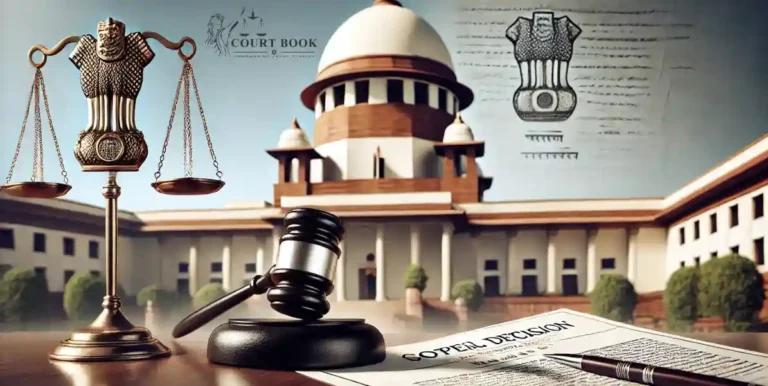In a significant judgment that could reshape India’s surrogacy landscape, the Supreme Court on Friday ruled that couples who had already begun surrogacy procedures before the enforcement of the Surrogacy (Regulation) Act, 2021 cannot be disqualified merely because they later crossed the age limits prescribed by the law. The Court held that reproductive autonomy is a fundamental right and cannot be taken away retrospectively.
Justice B.V. Nagarathna, delivering the judgment, emphasized that “the right to have a child through surrogacy is an extension of the right to reproductive autonomy under Article 21 of the Constitution.”
Read also:- Delhi High Court Drops Contempt Case Against Former Tax Official Over 'Willful Disobedience' Allegation in Income Tax Stay Order Dispute
Background
The ruling came on three petitions filed by different couples-Vijaya Kumari and her husband, Urvashi and her spouse, and Sadasivam and Mohanambal-each of whom had initiated the surrogacy process before January 25, 2022, the date the Act came into effect.
All three couples had frozen embryos ready for transfer when the law introduced strict age caps: 50 years for women and 55 years for men. Due to delays caused by the COVID-19 pandemic, their procedures were interrupted, and by the time they were ready to proceed, they had become ineligible under the new law.
Their central plea was simple: they had started the process in good faith, following the rules then in force, and should not be punished by a law that came later.
Court’s Observations
The bench examined whether the age restrictions under Section 4(iii)(c)(I) of the Act could apply to couples who had already initiated the process. The Court clarified that the law cannot operate retrospectively to invalidate rights that were validly exercised earlier.
Justice Nagarathna observed, “When these couples began the process, they were well within their legal rights. The subsequent age bar cannot stultify a right which had the imprimatur of the Constitution.”
The Court also rejected the Union Government’s argument that children born to older parents may lack proper guardianship. “Parenting ability is not the exclusive preserve of youth,” the bench remarked, adding that the State cannot judge the fitness of parents solely by age.
In another strong observation, the Court said, “If natural conception is unrestricted by age, there is no rationale to deny surrogacy on that basis to couples who had already begun the process.”
Decision
The Supreme Court directed that the three petitioner couples be allowed to proceed with their surrogacy arrangements, despite exceeding the statutory age limits. It ruled that the freezing of embryos constitutes the “commencement” of the surrogacy process, thereby protecting their vested rights.
“The freezing of embryos marks the stage where an intending couple’s decision to pursue surrogacy is complete,” the Court held. “Therefore, age restrictions cannot retrospectively apply to them.”
Read also:- Supreme Court Grants Bail to Juvenile in POCSO Case, Urges Early Sex Education in Schools
While the Court clarified that it was not striking down the age provision in general, it firmly held that it cannot apply to those who had started before the Act came into force.
The verdict, hailed as a humane and practical interpretation of reproductive law, is expected to offer relief to many couples caught in similar limbo. Legal experts say it reaffirms the balance between legislative intent and individual liberty-especially in deeply personal matters like parenthood.
Case: Vijaya Kumari S & Another v. Union of India & Others
Citation: 2025 INSC 1209
Case Type: Writ Petition (Civil) No. 331 of 2024 (with connected matters W.P. (C) No. 809 of 2024 and I.A. No. 181569 of 2022 in W.P. (C) No. 756 of 2022)
Petitioners: Vijaya Kumari S & Another; Urvashi & Another; Arun Muthuvel (applicant in connected case)
Respondent: Union of India
Date of Judgment: October 8, 2025














